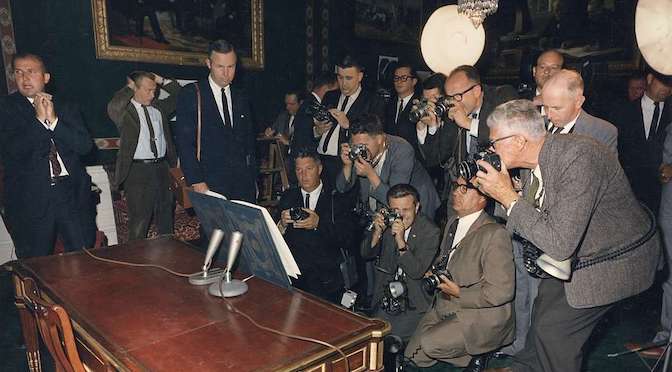Shervin Taheran illustrates the alarming trend of US presidents who indicate they can unilaterally withdraw from treaties without congressional approval. She argues the Executive Branch is not the “sole organ” to decide whether the United States can terminate a treaty. After examining international law pertaining to treaties, Taheran discusses how constitutional principles, textual evidence, historical… Continue reading Congressional and Supreme Court Restraints on Treaty Termination Carried Out at the President’s “Lowest Ebb” of Authority
Category: The Constitution
A Bellicose Founding Charter: The US and Providing for the “Common Defence”
In this book review, the author analyzes Akhil Reed Amar’s The Words That Made Us: America’s Constitutional Conversation, 1760-1840. Specifically, the author focuses on Amar’s central thesis—that the fundamental reason behind the US Constitution was national security—and how that should affect our reading of the Constitution today. The author concludes that Amar’s book is noteworthy… Continue reading A Bellicose Founding Charter: The US and Providing for the “Common Defence”
An Army Turned Inward: Reforming the Insurrection Act to Guard Against Abuse
Elizabeth Goitein and Joseph Nunn argue that the Insurrection Act is one of the most powerful and wide-ranging authorities available to the President of the United States. The Act authorizes the president to deploy US armed forces and the militia to suppress insurrections, quell civil unrest and domestic violence, and otherwise enforce the law in… Continue reading An Army Turned Inward: Reforming the Insurrection Act to Guard Against Abuse



